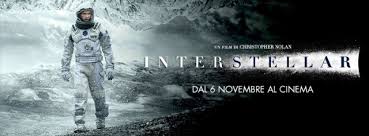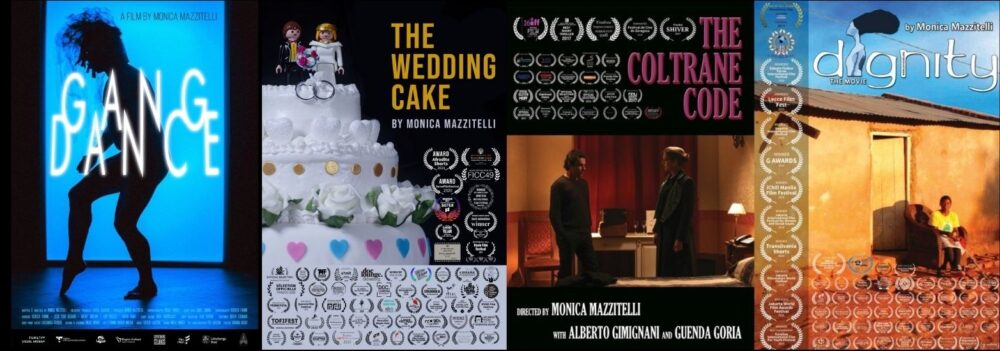 It may be that none of the fans of the most cerebral contemporary director around thinks that Interstellar is his best film. Indeed, many of them have been disappointed. Perhaps because the tributes to Tarkovsky and Kubrick are too obvious, to the point of becoming quotes or counter-quotes; or perhaps because, apart from the complexity of the idea of wormholes, or the law of gravity, too many things are “explained” at the end. And sometimes it has the feel of “the happy American family”, especially at the beginning, when some of the dialogue is naive and condescending, sometimes a little cheesy, too Spielbergian (the director for whom the movie was originally written). This is not what Nolan fans are looking for. And the most loyal −or the fussiest−have noticed some inconsistencies in the script, yes, even a few mistakes at the scientific level, that has negated the pleasure of “mechanical perfection” enjoyed elsewhere with this director. For some, even the most important Nolanian concept −the love conquers all message− is considered a shortcut.
It may be that none of the fans of the most cerebral contemporary director around thinks that Interstellar is his best film. Indeed, many of them have been disappointed. Perhaps because the tributes to Tarkovsky and Kubrick are too obvious, to the point of becoming quotes or counter-quotes; or perhaps because, apart from the complexity of the idea of wormholes, or the law of gravity, too many things are “explained” at the end. And sometimes it has the feel of “the happy American family”, especially at the beginning, when some of the dialogue is naive and condescending, sometimes a little cheesy, too Spielbergian (the director for whom the movie was originally written). This is not what Nolan fans are looking for. And the most loyal −or the fussiest−have noticed some inconsistencies in the script, yes, even a few mistakes at the scientific level, that has negated the pleasure of “mechanical perfection” enjoyed elsewhere with this director. For some, even the most important Nolanian concept −the love conquers all message− is considered a shortcut.
That said, it is still a very good movie: intense, sculptural, with wide open images that give spatial vertigo of immensity, silence, solitude, chills, emotion, underscored by the music of Hans Zimmer, almost always perfect. Not only does it talk about Love as a force that redeems all, that goes beyond the limits of matter, prevailing on everything despite being felt by such humble and fallacious creatures as human beings; it also speaks of struggle, hope, underscored by Dylan Thomas’s poem "Do not go gentle into that good night", that urges you not to surrender to death, even when you are nearing the end of life. Rebellion as a life force, as tenacity that moves the protagonist, Cooper (Matthew McConaughey, a bit two-dimensional and stiff in his acting, especially at the beginning, as if he were imitating Tom Cruise in one of his heroic roles), father of Murphy (played as a child by Mackenzie Foy, with strength, and as an adult by the intense Jessica Chastain). He and his wife bizarrely chose for her the last name of the inventor of the Law of pessimism, but she will instead rebel against this supposed destiny, effecting a catharsis of her name by saving the human race from extinction. And the medium is parental love: even though her father inflicts on her the ultimate pain – abandonment – he also gives her the means to solve the problem for which he deserted her: the end of the world. Their relationship is not clear of oedipal implications, from a subtly emerging sensuality, perhaps even unconsciously.
Doctor Mann’s (Matt Damon) metaphor is linear and simple. He is a scientist astronaut that Cooper’s mission chooses to visit, basing that choice on the manipulated data he has been sending out to attract them there, with the sole intent of being saved. A character that Nolan favors a great deal, to the point of devoting a comic to him. No names appear to have been chosen at random in this film: the exploratory missions sent to try to colonize other planets are called Lazarus, and when Cooper gets to Mann, he actually resurrects him from death, taking him out of hibernation. His return to life from the ice sarcophagus that contained him ends with him crying like a newborn, a being put back in the world. Mann’s name is pronounced with an American accent (not German) so that it is equivalent to “man”: he appears to be the “everyman”. One might wonder about the choice of a “German” surname for this character. Could it be that it hints (even unconsciously) at the equation of “German” = “the highest degree of cynicism”, which is not infrequently used to raise a kind of collective echo in films, coupled with the fact that he is the only scientist whose surname is always preceded by the title of "Doctor", echoing again Doctor Strangelove.
As mentioned before, Mann appears to be the everyman, the prototype: he represents us. He has attracted Cooper’s mission on false premises, lying about the results, manipulating scientific data, in the process destroying his robot support − which not coincidentally is called Kipp, one "p" more than Kip Thorne, the scientist who in reality developed the scientific theory on which the film is based. However, he did so to rebel against death, to not "go gentle into that good night" as Dylan Thomas phrased it. Considering it certain that humankind was doomed anyway, he sought his own salvation. Despite Murphy's Law. He tried, stubbornly. Was he wrong? The question remains open: when they say “Mann (= humankind) is a fucking coward” just before he tries to “go home” by stealing Cooper’s starship with an impossible maneuver, which is right and which is wrong? His vital, selfish thrust, or accepting death? Doesn’t it take “courage” to try to dock a spaceship with an almost impossible maneuver, which –in fact− will not succeed? A mother who rejects him, refuses to grant her son survival, abandons him. Just as Cooper abandoned his daughter, Murph. The same hubris.
The survival instinct is not heroic, but it is what saves us: acting in our interest. Greed in denial of death: what slows down the passing of time, what alters the star landscape with its gravity is the black hole Gargantua, its name derived from the Spanish garganta− throat: the representation of a huge insatiable throat that wants to swallow all for itself, careless of anything else. And yet, the survival of the astronaut Amelia Brand (Anne Hathaway) and her possibility of landing on another planet selected by NASA as a likely substitute for Earth, are ultimately granted only by the force of attraction of Gargantua: the momentum that will allow her to complete her journey despite having too little fuel left. Again, this will only be possible through an act of sacrificial heroism by Cooper: along with the robot TARS, he will abandon the starship Endurance in order to make it lighter and thus save on fuel.
It is in these dark aspects, not immediately obvious, that we find more of Nolan; not in the very simple −almost elementary− concepts that have disappointed his more introspective fans. And yet these are the concepts that are concerned with the ancestral issues of human race: love, death, hatred, oppression, altruism, family, fear, betrayal, abandonment. This is where the beauty, depth and emotion of this narrative come from.
Like in Avatar, beyond some elementary concepts, which can either deeply move us or, conversely, suggest an opposing sense of aversion, the film can and perhaps should be seen and enjoyed for its images, for the world of incredible visual imagination that it creates, for its special effects, for the gigantic beauty of its scenarios. As a movie, in short, not as an essay.
Translation editor: Ellen McRae
